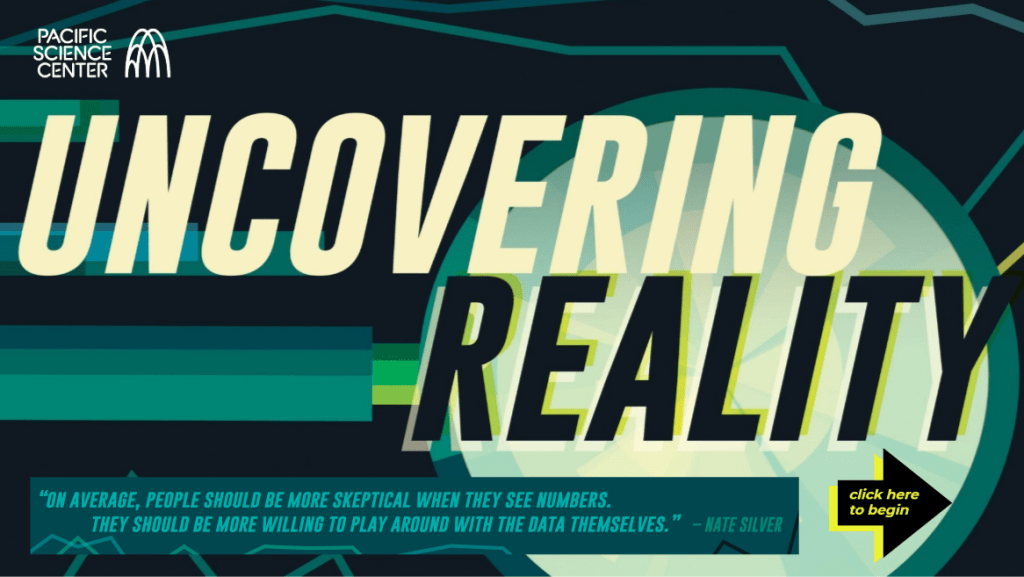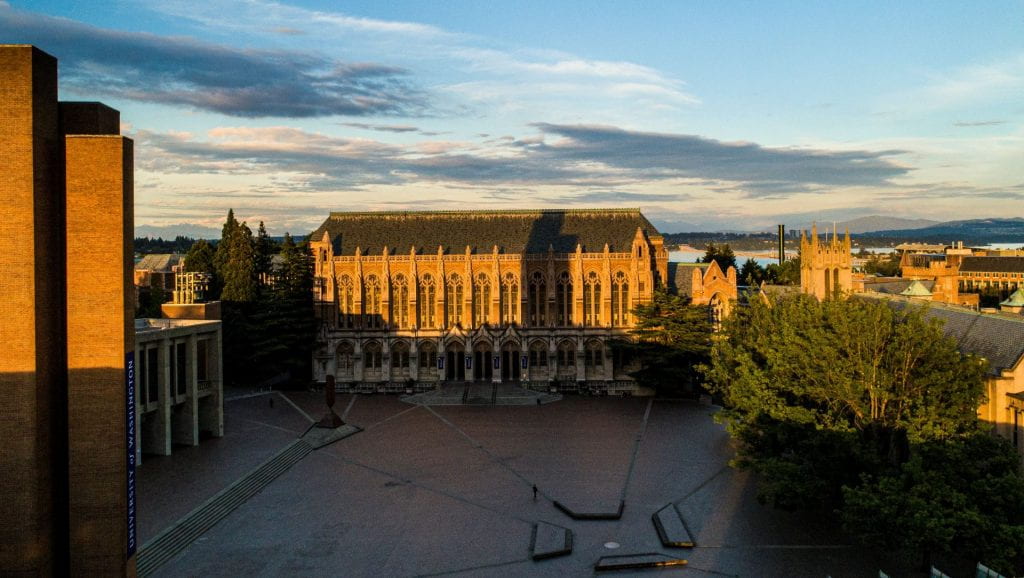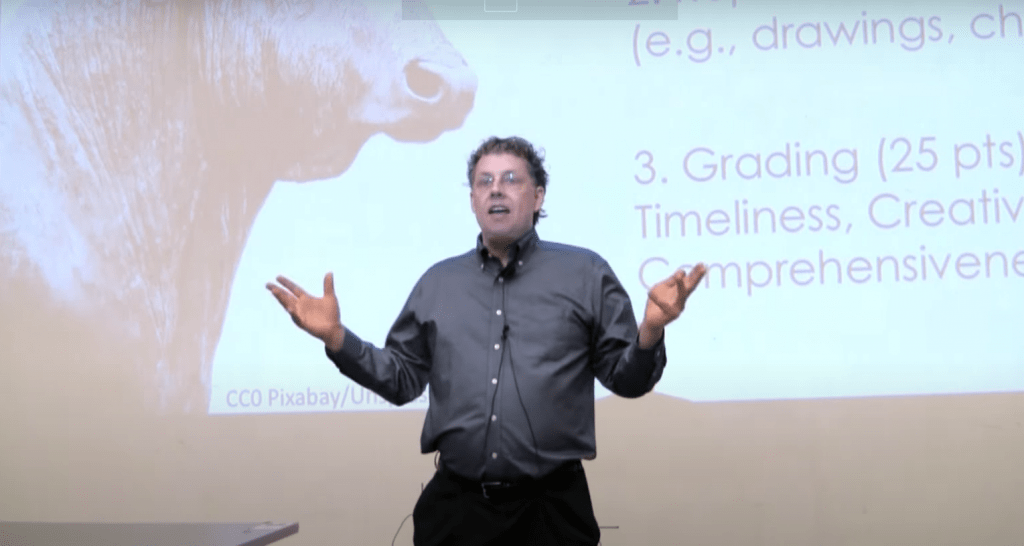This is a web version of the Center for an Informed Public’s News & Insights newsletter for June 2020, which was sent out on June 30. Check out our newsletter archives. Not signed up to received the CIP’s newsletter? Register here.
National Science Foundation awards CIP researchers $200,000 for COVID-19 grant
The National Science Foundation (NSF) has awarded grant funding for a proposal submitted by researchers at the University of Washington’s Center for an Informed Public (CIP) who are aiming to better understand how scientific knowledge, expertise, data and communication affect the spread and correction of online misinformation about an ongoing pandemic.
The approximately $200,000 in funding was awarded through NSF’s COVID-19 Rapid Response Research (RAPID) program. CIP principal investigators Emma Spiro, an associate professor at the UW Information School (iSchool); Kate Starbird, an associate professor in UW’s Department of Human Centered Design and Engineering (HCDE); and Jevin West, an associate professor in the iSchool, will look at how a crisis situation like the COVID-19 pandemic can make the collective sensemaking process more vulnerable to misinformation. // READ MORE
- A NOTE FROM CIP DIRECTOR JEVIN WEST: How the Center for an Informed Public at the University of Washington is building a community that combats strategic misinformation. // READ MORE
- EVENTS: Our ongoing Stand With the Facts virtual event series with KUOW Public Radio continues.
// LEARN MORE - DATA MEMO: The CIP’s Kate Starbird examines conspiracy theorizing in the time of COVID-19.
// READ MORE
Pacific Science Center, CIP team up on virtual exhibit scrutinizing data visualizations
Can we always trust charts and graphs? Data visualizations can be useful in translating complex data into more universal visual stories but their versatility can also lead to accidental distortion or intentional manipulation. The Center for an Informed Public worked with the Pacific Science Center to create a new virtual exhibit, “Uncovering Reality,” which can help you spot common ways people use charts and graphs to misrepresent reality.
Reviewing MisinfoDay 2020
Due to the pandemic, we shifted gears with MisinfoDay 2020, which had originally been designed for high schoolers as an in-person event in March on UW’s Seattle campus. Instead, we ended up having a successful virtual event in late May that included educators and librarians representing 15 middle and high schools from five school districts in Washington state. Although we couldn’t host students for this year’s MisinfoDay, CIP director Jevin West and Washington State University digital literacy expert Mike Caulfield recorded short Q&A videos responding to a handful of submitted questions from students. Check those videos out on our MisinfoDay information page. Thanks to all those who participated in our 2020 event, including our partners at Washington State University. Interested in MisinfoDay2021? Email misinfoday@uw.edu and/or sign up for updates as our plans shape up for next year’s event.
CIP researchers awarded UW Population Health Initiative COVID-19 grant
Earlier this spring, CIP’s Emma Spiro, Kate Starbird and Jevin West were awarded a $20,000 COVID-19 rapid response research grant from the UW Population Health Initiative – one of 21 projects selected – that seeks to better understand online discourse during the ongoing pandemic and come up with strategies for improving collective action and sensemaking within science and society. Read more about the 21 COVID-19 grants awarded by the Population Health Initiative.
CIP in the News
Since the Center for an Informed Public officially launched late last year, our researchers have been regularly interviewed, quoted or otherwise featured in various local, regional and national news outlets, livestreams and podcasts.
In a recent interview, NBC News described UW Department of Biology professor, epidemiologist and CIP affiliate researcher Carl Bergstrom (pictured above), as “a voice of clarity on the coronavirus” who uses his platform to “cut through the politics to educate the public, elevate the voices of other scientists and fight back against claims that are misleading or downright false.” Last week, Bergstrom was a guest on Bill Nye‘s Science Rules! podcast, where he said: “I don’t know what you do when scientific claims become politicized and people start attacking the credibility of science itself. I think all we can do is be as honest as we can and be transparent, show people what we’re doing, explain what we’re doing, [and] do a good job at science communication …”
In other recent highlights:
- The Seattle Times Editorial Board cited the CIP’s work to conduct “urgently needed research to help regulators and social-media platforms come together to tame this Wild West of information without impinging on free speech.” [The Seattle Times]
- CIP director Jevin West was quoted in a recent Nature article on coronavirus misinformation where he said: “By countering misinformation on COVID-19, [scientists] can help policymakers avoid introducing harmful policies, improve public understanding of the pandemic, and, most importantly, save lives. [Nature]
- The CIP’s Ryan Calo was featured in a recent KUOW Public Radio Q&A focused on the response of technology companies to fighting misinformation and disinformation. [KUOW]
- NBC News profiled the CIP’s Kate Starbird in a feature about three disinformation researchers “who saw the coronavirus infodemic coming.” [NBC News]
- In a feature in The Atlantic, science writer Ed Yong interviewed both Starbird and Bergstrom about “why the coronavirus is so confusing.” [The Atlantic]
- High Country News, an independent media organization covering the Western U.S., interviewed the CIP’s Emma Spiro about her work monitoring misinformation during the coronavirus pandemic. [High Country News]
- Spiro, Starbird and West co-wrote an article for The Washington Post‘s Monkey Cage political science blog that analyzes a recent example of how “partisan polarization interacting with social media and cable news” helped amplify and quickly spread problematic beliefs about the coronavirus pandemic. [The Washington Post]
- The Verge interviewed CIP affiliate researcher Mary Fan about police body camera video footage: “Police body camera and bystander cameras can tell different stories because they’re often at different angles, and they are focusing on different aspects of the encounter, and may turn on at different times and capture very different stories.” [The Verge]
Beyond the CIP’s principal investigators and affiliate researchers, some of our incoming postdoctoral scholars and PhD students have been in the news, too.
- The Washington Post interviewed CIP postdoc Kolina Koltai, whose research has been focused on anti-vaccine misinformation. Koltai discusses how conspiracy theorists “sow distrust of immunization” by relying “on some well-founded concerns about profit and the role of industry.” (Koltai starts with the CIP this summer.) [The Washington Post]
- The work of Andrew Beers, a PhD student in UW’s Department of Human Centered Design and Engineering (HCDE) working with CIP researchers, was referenced in a Vice News article examining a video that’s been circulating among conspiracy theorists falsely claiming that Bill Gates is the mastermind behind the coronavirus pandemic. [Vice News]
- HCDE PhD student Ahmer Arif was interviewed by Business Insider about indications that foreign state actors have tried to capitalize on recent U.S. protests that have followed the killing of George Floyd in Minneapolis. [Business Insider]
Be a Better Information Consumer
A tip from CIP director Jevin West: “If a news headline and social media post instigates an emotional reaction – especially of fear, anger or surprise – be wary. It is a common strategy used by propagandists, opportunists and machine algorithms to manipulate behavior and perception.”







